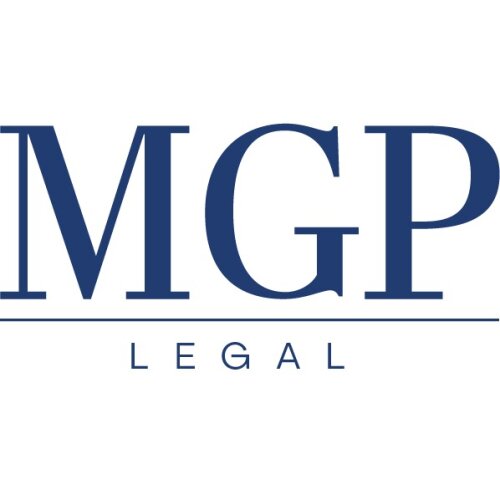Best Water Law Lawyers in Florence
Share your needs with us, get contacted by law firms.
Free. Takes 2 min.
List of the best lawyers in Florence, Italy
About Water Law in Florence, Italy
Water Law in Florence, Italy encompasses the set of legal rules and regulations governing the use, distribution, and management of water resources within the city and its surrounding territories. Rooted in both national and local legislation, Water Law addresses the allocation of rights to surface and groundwater, public and private water usage, ecological protection, and the responsibilities of users and public bodies. In Florence, local water usage is particularly significant due to its reliance on the Arno River, numerous tributaries, and the need for careful management of resources for residents, agriculture, and industry. The laws aim to balance the needs of individuals, businesses, and environmental protection.
Why You May Need a Lawyer
There are many situations where you may require the assistance of a lawyer specialized in Water Law in Florence. Common scenarios include disputes over water use between neighbors or agricultural entities, issues relating to water pollution or contamination, difficulties obtaining water use permits, legal proceedings involving fines or sanctions by local authorities, or conflicts arising from construction works near natural water bodies. A lawyer can also assist with navigating administrative procedures, appealing decisions by local government, or understanding your responsibilities as a property owner or business operator. Legal advice ensures that your interests are protected and that you comply with the complex set of rules governing water in Florence.
Local Laws Overview
Water Law in Florence is mainly regulated by Italian national laws, particularly the “Testo Unico Ambientale” (Environmental Code), with additional regional and municipal regulations specific to Tuscany and the city of Florence. Key aspects include:
- Public ownership of water resources, with almost all surface and groundwater considered a public good.
- Strict requirements for water use authorizations, especially for irrigation, industrial use, or construction projects.
- Environmental protection measures, such as restrictions on discharges and pollution controls, enforcement of water quality standards, and protection of riverbanks and floodplains.
- Specific regulations governing access to and usage of the Arno River and its tributaries.
- Water management and distribution overseen by the local water authority (Autorità Idrica Toscana) and municipal utilities.
- Possibility of penalties and administrative sanctions for unauthorized use, pollution, or failure to maintain water infrastructure.
Frequently Asked Questions
What activities require a water use permit in Florence?
Permits are needed for withdrawing water from rivers, wells, or lakes for irrigation, industrial processes, construction, or large-scale residential use. Small-scale domestic use may be excluded, but it is important to verify with local authorities.
Can private individuals own water resources in Florence?
No, water resources are considered public property. Individuals and entities may be granted usage rights, but they do not own the water itself.
How can I appeal a sanction or fine related to water law violations?
You can file an administrative appeal to the authority that imposed the sanction, or proceed to the Regional Administrative Tribunal (TAR) for judicial review. Legal advice is strongly recommended for such procedures.
Are there special rules for water use in agriculture?
Yes, agricultural activities require specific authorizations, especially for irrigation drawn from public water sources. There are quotas and methods that must be respected to prevent overuse and environmental harm.
What steps are required for building near a river or stream in Florence?
Construction near water bodies generally requires prior authorization, environmental impact assessments, and compliance with strict setback and safety requirements. Municipal and regional permits may both be necessary.
What should I do if I suspect water pollution?
You should report the issue to the local environmental agency (ARPAT) or the municipal authorities. Legal action may be taken against responsible parties, and victims have the right to seek compensation or remediation.
Who manages water distribution in Florence?
Water distribution is managed by public utilities under the authority of the Autorità Idrica Toscana (Tuscan Water Authority), which sets policies, allocates resources, and ensures compliance with legal standards.
Can I drill a well for private use?
Drilling a private well typically requires explicit authorization, technical assessments, and compliance with regulations on location and depth. Unauthorized wells can lead to penalties or closure orders.
What are the penalties for unauthorized water use?
Penalties vary but may include administrative fines, orders to restore previous conditions, or criminal charges in cases of significant environmental damage.
Is water law different in Florence compared to other parts of Italy?
While many regulations are national, there are regional and municipal variations in requirements, enforcement, and permitted uses. Consulting a local lawyer ensures advice tailored to Florence's specific legal environment.
Additional Resources
If you need further information or guidance, you may find these resources helpful:
- Autorità Idrica Toscana (Tuscan Water Authority) - for permits, complaints, and local regulations
- ARPAT (Agenzia Regionale per la Protezione Ambientale della Toscana) - for environmental monitoring and reporting pollution
- Comune di Firenze (City of Florence) - local regulations and contacts for building permits or water-related projects
- Ordine degli Avvocati di Firenze (Florence Bar Association) - to find experienced lawyers in Water Law
- Istituto Superiore per la Protezione e la Ricerca Ambientale (ISPRA) - for national environmental guidelines and research
Next Steps
If you believe you have a legal matter involving Water Law in Florence, start by gathering all relevant documentation, such as permits, notifications, or correspondence with authorities. Identify the specific issue, whether it is an application, dispute, investigation, or need for clarification. You can then contact a local lawyer experienced in Water Law, who can help assess your situation, explain your rights and obligations, and represent you before authorities or courts if necessary. Using the above resources can also provide initial orientation while you consider the best course of action. Do not hesitate to seek professional legal advice promptly, as many water law matters have strict deadlines and regulated processes.
Lawzana helps you find the best lawyers and law firms in Florence through a curated and pre-screened list of qualified legal professionals. Our platform offers rankings and detailed profiles of attorneys and law firms, allowing you to compare based on practice areas, including Water Law, experience, and client feedback.
Each profile includes a description of the firm's areas of practice, client reviews, team members and partners, year of establishment, spoken languages, office locations, contact information, social media presence, and any published articles or resources. Most firms on our platform speak English and are experienced in both local and international legal matters.
Get a quote from top-rated law firms in Florence, Italy — quickly, securely, and without unnecessary hassle.
Disclaimer:
The information provided on this page is for general informational purposes only and does not constitute legal advice. While we strive to ensure the accuracy and relevance of the content, legal information may change over time, and interpretations of the law can vary. You should always consult with a qualified legal professional for advice specific to your situation.
We disclaim all liability for actions taken or not taken based on the content of this page. If you believe any information is incorrect or outdated, please contact us, and we will review and update it where appropriate.












